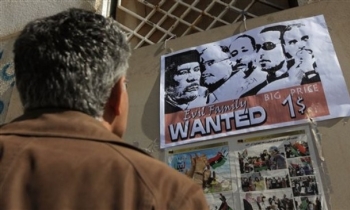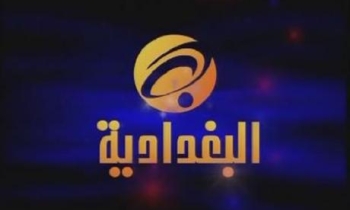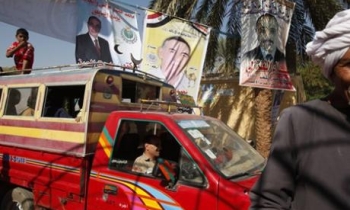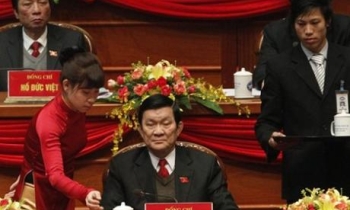Safety remains the single greatest concern for media professionals in the Democratic Republic of Congo (DRC), despite the fact that statistically speaking attacks against the press and journalists are down. The decline was more likely attributable to censorship and self-editing on the part of journalists, rather than any improvement to the country's press laws.
The findings are from Journalist en Danger (JED)'s 2008 annual report on press freedom titled 'Ten years for press freedom: the situation of freedom of the press in Central Africa', released on December 23. The ceremonies marked the 60th anniversary of the Universal Declaration of Human Rights, as well as the press freedom group's own 10th anniversary.
JED documented 110 press freedom violations across the country in 2008, compared to 163 for the previous year, representing a 33 per cent drop. This quantitative improvement came at the expense of a general deterioration in the quality of news reporting.
For the fourth consecutive year, at least one journalist was killed in 2008. Didace Namujimbo, a reporter for Bukavu-based Radio Okapi, was gunned down on November 21. He was arrested by state security agents in March and held in secret detention for three months at a national intelligence agency detention centre along the Congo River.
Prison sentences continued to be handed down to journalists for press infractions. Nsimba Embete Ponte, a reporter for the weekly L'Interprète, is currently serving a 10 month term in Kinshasa's CPRK prison (Centre pénitentiaire et de rééducation de Kinshasa) after being held secretly for three months by intelligence forces. He was charged with "insulting a head of state."
Seventeen journalists were assaulted in the course of their work, according to JED, while another 17 were the victims of serious threats or harassment. Twenty-three journalists or media outlets reported incidents of administrative, financial or judicial pressure. Among these JED noted in particular the case of 12 RTLN (state-run television) journalists who were suspended in November by RTLN's management board for "belonging to a subversive organisation within the company". The journalists drew the ire of management after they aired images of a peace rally organised by Congolese-Belgians in Brussels in which protestor's signs calling for the resignation of the Congolese president Joseph Kabila were clearly visible. The suspension order was lifted two weeks later on the orders of the communications ministry.
The press freedom group also documented five cases where access to information was blocked, including the closure of Molière TV and of the community radio station RACOU (Radio Communautaire Ushirika) in the country's eastern region.
In the face of renewed hostilities in the east, the media regulator, HAM, issued a statement on October 10 barring media outlets from broadcasting "news that has not been confirmed by official sources and that is likely to demoralise national troops."
The preceding list of violations led JED to conclude that the media is respected only when it offers praise for those in power but quickly loses favour when it criticises or denounces the numerous flaws of a country only too well-known for its corruption and injustice.
On May 23, Eddy Abasiko Mango, a journalist with the Kisangani-based station of Radio Télévision Nationale Congolaise (RTNC), was suspended for three months by Bwande Bwanapuwa, the station's provincial manager. He was charged for hosting a programme where guests criticised the provincial governor. The manager was summoned to the provincial governor's office. Upon the manager’s return from the meeting, he suspended the journalist and cancelled the programme for "tolerating remarks that are contrary to RTNC's editorial guidelines."
Achille Kadima Mulamba, a publication director of the Kinshasa-based weekly Africa News, had also been facing legal action since July 2 for defamation of the governor of Equateur province, José Makila. The governor had asked the court to sentence the journalist to "a heavy prison term with immediate arrest and payment of US$ 50,000 in damages together with his newspaper. The plaintiff also demanded that the court "order the closure of Africa News."
In July, Mila Dipenge, a programmer host and cameraman of TV station Télé Kindu Maniema, was arrested by the National Intelligence Agency (ANR). The ANR agents carried out a raid on the studios of the TV station. Local sources said the raid was ordered by the provincial Governor Lingo because Dipenge allowed criticism of the local authorities to be voiced on the air. The governor was said to have been particularly irked by a money-changer's comment that: "We like Kabila, but we no longer want the people he has installed here."
On August 25, Jeff Kande, a journalist with Radio-Television Amazone (RTA), a privately-owned broadcaster based in Kananga, DR Congo, received anonymous phone calls threatening him with imminent death. According to information obtained by JED, the threats followed the August 20 broadcast on RTA of a programme entitled "Why not talk about it". The host in the programme reportedly predicted the failure of the start of the 2008 school year if teachers' salary demands were not met.
On September 15, Global TV's station manager, Daudet Lukombo, was detained in secret for 48 hours in a cell at the police special services branch known as Kin-Mazière. Lukombo was questioned at length by a magistrate who accused him of "inciting rebellion" for having allowed the broadcast of the September 10 press conference by Member of Parliament (MP) Né Muanda Nsémi, the spiritual leader of the political-religious sect Bundu Dia Kongo (BDK). For the examining magistrate, "the broadcast of this press conference violated the code of professional ethics of Congolese journalists because it contained hateful remarks and insults directed against the head of state, Kabila."
JED also expressed concern about the safety of Radio Okapi's Bunia correspondent Jean-Paul Basila, who had been the object of recent threats by officers with the Armed Forces of the Democratic Republic of the Congo (FARDC). Basila was accused of "delivering news that is more militia propaganda and which humiliates the national army."
On December 2008, a letter to Minister of the Interior and Public Safety Celestin Mbuyu, JED expressed grave concern over the various threats and stigmatisation directed at the Goma-based Radio Okapi, and particularly at Gisèle Kaj, a journalist and news desk editor for the radio station, by provincial governor Julien Paluku.
The press group also stated in its letter to Gizenga that, "the attacks on these media professionals reveal a state of mind in the party that now considers the press as a scapegoat for the government's failures and journalists as bêtes noires."









